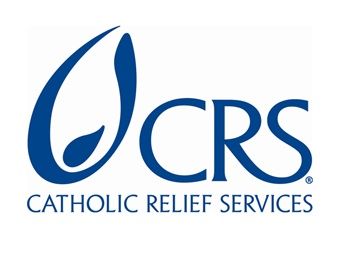
.- It was the end of March when the violence in Syria became unbearable for Salwa, a young mother who lived in the besieged city of Homs with her husband and four children.
After more than a year of almost daily bloodshed, she and her family left behind everything they owned, and fled Syria with nothing more than the clothes they were wearing.
They crossed the border into neighboring Jordan, where they finally found safety in the town of Mafraq. There, with the help of Catholic Relief Services, Caritas Jordan is helping families like Salwa’s get through the crisis.
Salwa told Caritas Jordan volunteers that she’s grateful her family is safe, but that her children are still fearful. “Whenever they hear fireworks—often part of local wedding celebrations in Jordan—they fear that the violence has followed them from their home in Syria to Jordan.”
CRS helps thousands of Syrians affected by crisis
The violence that erupted in Syria in March 2011 has spiraled into a tumultuous, terrifying conflict and has led to paralyzing fear for innocent civilians—many of them women, children and the elderly. It’s unclear exactly how many Syrians have been displaced by the fighting, but the United Nations estimated at the end of May that at least 500,000 Syrians had fled their homes for the safety of neighboring countries.
As the crisis worsens and more Syrians are forced to flee their homes because of the violence, CRS is expanding its relief efforts. Longtime partner Caritas Jordan, for example, is working mostly in the northern Jordanian towns of Mafraq and Ramtha to provide basic necessities as well as medical care to thousands of Syrian refugees.
Board member Cardinal Theodore McCarrick, who has traveled around the world on behalf of CRS, visited northern Jordan in late June to meet with Syrian refugee families and witness firsthand the work being done.
Dignity and gratitude
“It is a blessing for the tens of thousands of families who are forced to flee from the tragic violence in Syria to find food and medicine, and most of all comfort and solidarity, from CRS and our partners here in Northern Jordan. I am thankful for the generosity of our benefactors who make this possible,” Cardinal McCarrick said.
In addition to the more than 150,000 Syrians who have already made it to across the border, Caritas Jordan volunteers report that hundreds of Syrians continue to arrive daily.
“What we’re seeing now is a very real need for medical assistance,” said Wael Suleiman, executive director of Caritas Jordan.
“We have a staff of about 30 volunteers who have been working tirelessly to assist the refugees with food, water and basic necessities, but now we’re seeing refugee families in need of medical attention. We’ve documented cases of people with chronic physical diseases, and those who’ve been severely traumatized by what they’ve experienced. These people need medicines, medical monitoring, as well basic medical equipment that we hope to be able to provide.”
Kevin Hartigan, incoming regional director for CRS in Europe, the Middle East and Central Asia, said that the “Syrian refugees we met in Jordan had lost everything, and many spoke of their lost loved ones. But their dignity and warm gratitude for the medical and material support provided through Caritas Jordan was humbling.”
Story reprinted with permission from CRS.
Liz O’Neill is CRS’ communications officer for Asia. She is based in Baltimore, Maryland.



